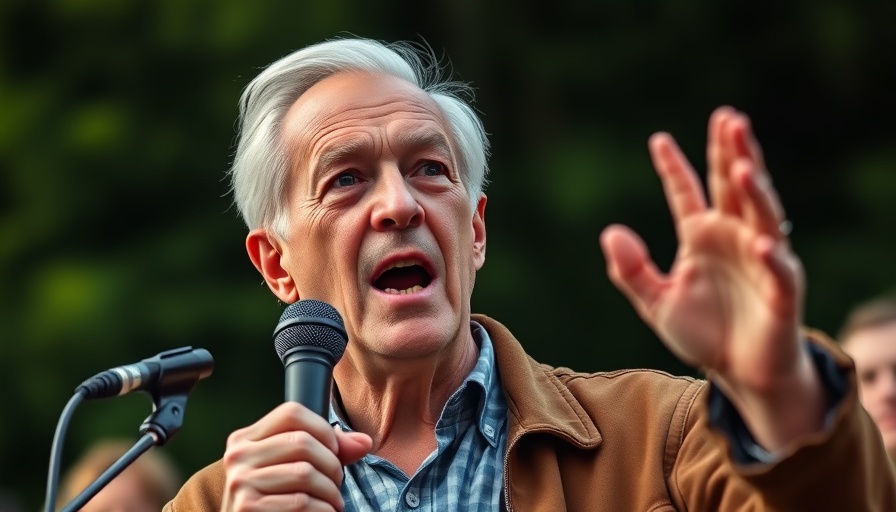
Political Fallout: A Changing Landscape
In an age of heightened political tension, the recent actions of Senator Bill Cassidy and Health Secretary Robert F. Kennedy Jr. have ignited a firestorm within conservative circles. When Kennedy disbanded the entire CDC immunization advisory panel, consequences echoed far beyond the walls of Washington, D.C. Conservative radio host Erick Erickson didn't hold back, publicly calling out Cassidy for his perceived inaction. With his statement, Erickson's frustrations reflect a growing concern among conservatives about accountability and health leadership in the wake of such drastic changes.
The Role of Accountability in Health Policies
As public health processes undergo scrutiny, the implications of Cassidy’s decisions are at the forefront of this debate. By failing to challenge Kennedy's controversial moves, Cassidy inadvertently opened a wider dialogue on the responsibilities of elected officials—particularly when political endorsements clash with public health safety. In a world ravaged by misinformation and public distrust in institutions, transparency and accountability are more critical than ever. How can we expect the public to trust health guidelines if the bodies that maintain them are dismantled without thorough checks and balances?
Crisis in Confidence: The Impact on Public Health
The uproar also unveils an unsettling truth: the public’s confidence in health institutions is wavering. Responses from social media illustrate a shared discontent, with many echoing the sentiment that many in the legislature move slowly when immediate action is paramount. This rising tide of skepticism towards health officials and politicians only deepens concern about the potential for a public health crisis. With disease and infection knowing no borders, the ramifications of Cassidy's actions stretch beyond mere appointments; they risk undermining years of progress in public health.
Polarized Perspectives: Navigating the Conversations
In conversations surrounding public health and political decisions, it’s essential to recognize the multiplicity of views. For some, Erickson’s outrage mirrors a longing for a more aggressive stance on health governance. For others, witnessing the politicization of health advisory panels raises alarms about the integrity of public health recommendations. This juxtaposition highlights how the intersection of politics and public health offers a rich ground for discussion, yet also a challenging terrain for leaders.
Looking Ahead: The Future of Health Leadership
As we look to the future, predictions regarding health leadership remain uncertain. Will other senators follow in Cassidy’s footsteps, or will this backlash inspire a renewed dedication to protect public health? If trust is to be rebuilt, legislative officials must clearly articulate their priorities and strategies in advancing health policy. The conversation cannot stop here; it must evolve into actionable steps that ensure health institutions operate without interference from political agendas.
Conclusion: Taking Action for Better Health Governance
The series of events catalyzed by Kennedy’s drastic changes poses a critical chance for conversation and reform in public health policy. It’s evident that the time for accountability and leadership is now. Political representatives, health officials, and the public must come together to ensure that health governance prioritizes the well-being of citizens over political gain. Collectively, we can advocate for leadership who carry the boldness to stand firm in the name of public health.
 Add Row
Add Row  Add
Add 




Write A Comment